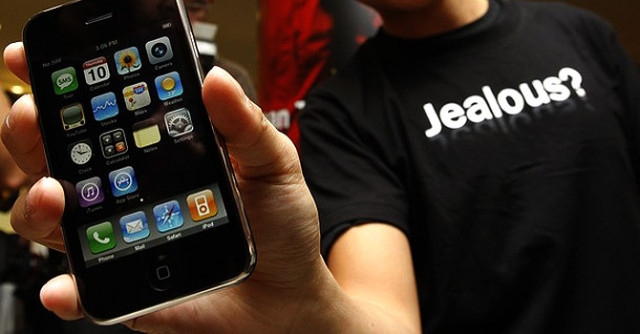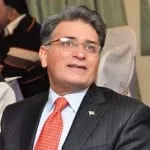The Supreme Court’s intervention in the availability of 3G technology in Pakistan should be received with a welcoming reaction, as the country is in dire need for high-speed mobile (portable) broadband connectivity.
Over the past few months, more than 160 countries have launched 3G services and the number of active 3G subscriptions surpassed one billion. Even in a small and poor country like Kiribati - situated in the middle of the Pacific with hardly any resources and considered to be one of the least developed countries of the world - 3G systems are being introduced to the public. Countries from Australia to the USA are allocating billions of dollars to deploy broadband infrastructures, whereas we need the highest court in the country to order for allocation of broadband systems, and finally use the God-given resource of frequency-spectrum.
Now the question arises as to why the world is going crazy for broadband?
Well, the main benefit of broadband lies in its capability as a deliverer of basic services to citizens in an extremely non-discriminatory way. Through applications such as e-education, e-medicine and e-governance, to name a few, users can easily have access to education, healthcare and governance. These services can be provided to all the citizens irrespective of how rich or poor they are and how near or remote they live.
One can receive healthcare through e-medicine, where doctors can gauge your health status via different applications and video chatting facilities. Similarly, children can learn and get education through multimedia and animations that can help them understand difficult concepts without having to rote learn them. If a lecture is given through video calling, it will be received by all, without any discrimination of class, gender, ethnicity or race. This is particularly important for those 70% of us who live in rural areas. In that respect broadband is a great equaliser of sorts!
Greater access to broadband has been found to help accelerate achievement of development targets. The Millennium Development Goals could be one such target, which Pakistan agreed to pursue along with the rest of the international community nearly a couple of decades back but has not paid much heed to it up till now.
It is only with broadband that we can serve our exploding population, with a Compound Annual Growth Rate (CAGR) of 2.5%, at their doorsteps. This will promise an inclusive economic development in rural areas as well as prevent mass migration to urban centres, hence saving our cities from crumbling under their own weight.
Sceptics usually ask, why 3G? Is it to enable us to watch movies on the go?
Unfortunately, a lot of people only think of it in terms of smart phones. Although a large amount of productive things could be done with 3G smart phones, it is the 3G mobile broadband on PCs, laptops and tablets that is of real value for developing countries. To connect these devices to broadband, USB dongles are used. People in developed countries usually use mobile broadband in addition to the fixed broadband, but in developing countries mobile-broadband is often the only broadband access available. That does not mean we use it only for cell phones and not for offices and homes.
In Pakistan, broadband is available in less than 300 towns and cities. All of these 2.5 million odd broadband connections belong to the fixed broadband category. The problem is that we never had an extensive fixed broadband network, therefore the number of fixed connections that we can have is limited. In addition to this, Pakistan Telecommunication Company Limited (PTCL) is the only dominant fixed-line provider in Pakistan and it has become a kind of monopoly broadband provider, which is causing a downfall in its services.
On the other hand, 2G cellular GSM networks are present all over the country and 3G will be accommodated with these cellular network providers. Thus 3G networks will reach 90% of the population with relatively less effort. I deliberately use the word “effort” and not “investment” because investment will come from private sector operators. The government does not need to bother about development budget and resource constraints. What else could one ask for!
Just like 2G was such an effective engine of growth in the last decade, 3G can also contribute significantly. Broadband deployment will unleash tremendous opportunities related to jobs, foreign investment, trade, and economic growth. For example, as the users grow in numbers, a completely new sector will emerge – that of local content, software and applications! And indeed, Government services like Education, Healthcare and Governance will immediately become possible for rural areas. Admittedly the private sector operators would deploy 3G mainly in cities, but for the rest the Universal Services Fund (USF) can work as initial investment.
Therefore allocating broadband frequency spectrum to operators is extremely urgent and essential. It should have been done five years ago. And as for the debate whether the licenses should be for 3G or 4G, there is one answer. The licenses should be “technology-neutral” – let the operators decide. They certainly know the market better.
Last but not least, it appears that the whole purpose of auctioning frequency spectrum is to get the short-term benefit at a big price and fill the budget gap. In my humble opinion, that is completely misplaced. We should be more concerned with maximum coverage in shortest possible time. That’s what the national interest demands.
Why does Pakistan need 3G?
3G will break all class barriers, providing equal education, healthcare and governance to all sections of society.



COMMENTS
Comments are moderated and generally will be posted if they are on-topic and not abusive.
For more information, please see our Comments FAQ